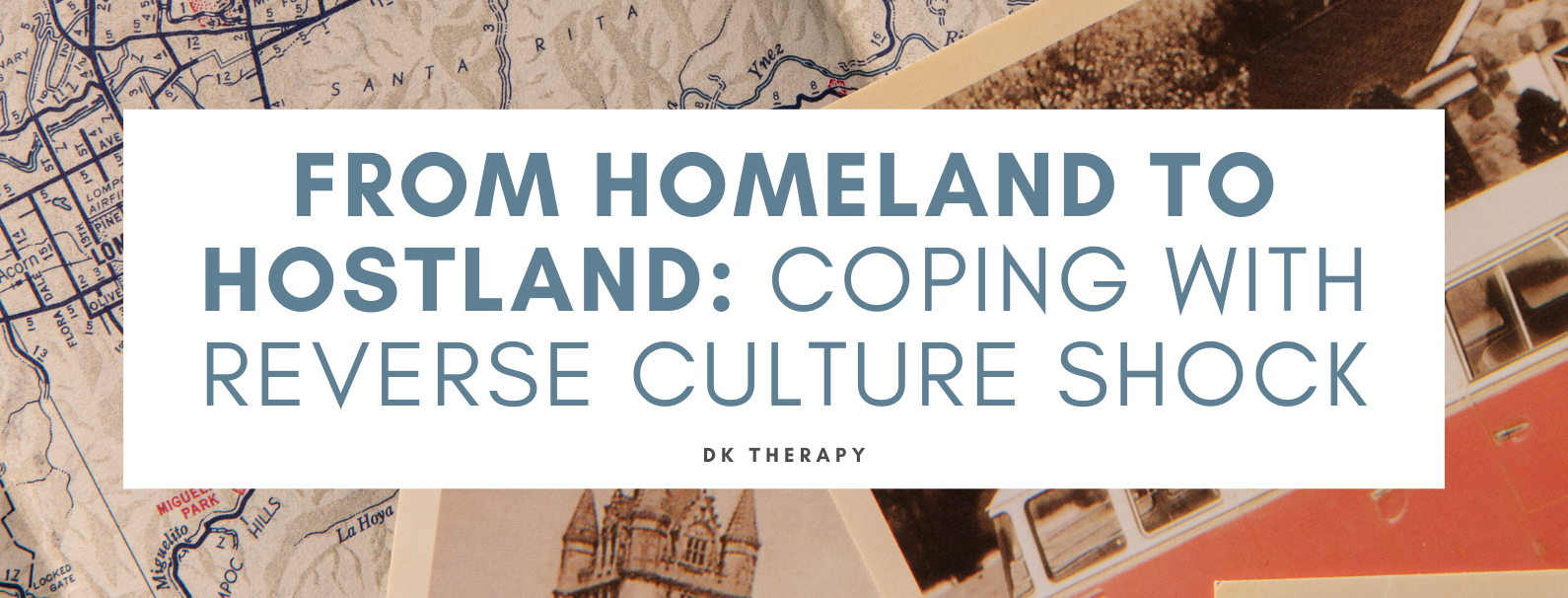
Culture shock involves the emotional roller coaster of confusion and anxiety experienced when initially moving to a new place. Immersing yourself in a new culture can make you feel disoriented and nervous. Just like moving from home to a foreign country, returning home after an extended period of time living in a new culture results in several stages of emotional adjustment known as reverse culture shock. This blog post explores reverse culture shock and some tips for coping with the surprising emotions that may happen when returning home.
 Reverse Culture Shock
Reverse Culture Shock
No matter how well you prepare for change, living or studying abroad demands lifestyle changes that often result in some emotional challenges. Potentially more unexpectedly, returning home can have some of the same effects. Reverse culture shock occurs when transitioning home from living abroad. Although your home is a comfortable place you know very well, the changes you experience when living abroad require you to make adjustments when transitioning back after your time away. The feelings are normal and temporary but may be a bit confusing and unsettling.
Stages of Reverse Culture Shock
Returning Home
As your departure date approaches, you may experience excitement, nervousness, and maybe a little sadness. You may wonder if things have changed at home and if you will fit in now that you have had so many new experiences. Feelings of anxiousness may intensify as you travel home.
Honeymoon Phase
When you initially arrive, a honeymoon phase typically begins. As your family and friends greet you, you will feel overjoyed. Settling back into the comforts of home with all your favorite things around will feel great. At first, this phase will seem normal and like it will last forever.
Frustration
After a few days, possibly a few weeks, a confusing frustration may set in as you find yourself getting frustrated over things that might not have bothered you before. For example, if you had easily accessible public transportation abroad and your home town lacks efficient public transportation, you may feel frustrated. Some things that always felt “normal,” familiar, and comforting may no longer feel so reassuring.
Gradual Readjustment
Eventually, Things will feel less frustrating as you become less critical about things that bothered you during your frustration stage. As you gradually adjust, you may begin to contemplate what you learned living abroad and apply some lessons learned to your life at home.
Coping with Reverse Culture Shock
Accept That You Have Changed
After living abroad, you will come back to a different person. Your worldview will experience changes due to exposure to new people, cultural differences, and the natural process of personal growth that occurs through managing life in a new country. Accepting yourself is crucial during your transition home. Keeping a journal to sort out your thoughts and feelings will help you understand yourself and accept who you are now.
Share Your Experience
Share your experiences with family, friends or other groups. You can also share through a personal blog, making videos, or creating a scrapbook.
Stay in Touch with Your International Friends
Stay in touch with the friends you made while living abroad.
Keep Exploring
When you were living abroad, you probably spent a lot of time exploring. You can continue exploring in your local area and your home country. Making plans to get out and about in your local area will also help you combat the boredom that may set in after returning home.
Seek Therapy
Navigating the often confusing effects of reverse culture shock can be challenging. If you think you need help addressing the emotional and mental toll of reverse culture shock, contact us at DK Therapy today.




